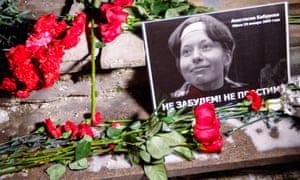This article discusses how fake news, which poses as legitimate journalism, can evolve to become a threat to democracy. An inquiry had been launched by the House of Commons media committee to determine an industry-standard definition of fake news, thus allowing them to identify how one could be misled and investigate how the BBC can control the consumption of fake news. It is also suggested that there would be an examination on whether search engines and social media companies, such as Google, Twitter and Facebook, need to take more of a responsibility in controlling fake news, and whether the selling and placing of advertising on websites has encouraged its growth.
- According to the research, of the known false news stories that appeared in the three months before the election, those favouring Trump were shared a total of 30 million times on Facebook, while those favouring Clinton were shared 8 million times.
- Analysis by Buzzfeed also showed there was a huge spike in engagement with fake news during the final three months of the campaign when compared with reports from outlets such as the New York Times, the Washington Post and CNN.
I believe that it is good that the government are finally investigating the issue of fake news as it truly is a threat to democracy and also stability despite how much of a minor problem it may seem to the public and consumers. Fake news could spiral out of control, resulting in dangerous situations as represented through the pizza restaurant hoax in washington.

This article discusses the concept of "press freedom" and how despite the fact we may believe we have press freedom it is actually under pressure and relative. Many journalists in foreign countries, in particular the middle east, have seen the imprisonment and deaths of journalists due to simply doing their jobs of ensuring their audiences are exposed to information that informs them. This ultimately highlights how their is limited freedom in these countries, increasing the difficulties of one doing their job. The article also mentions we are also freer to ignore what’s happening elsewhere. For example, when there is a mass slaughter of journalists, such as the cartoonists of the Parisian magazine Charlie Hebdo, the story is covered well whereas the persecution of journalists in other non-western countries are not, such as Nazeeha Saeed in Bahrain or even Russia, where investigative journalists Anna Politkovskaya and Anastasia Baburova were murdered. The writer of the article comes to the conclusion that we need to stop turning a blind eye to these issues as we have a measure of freedom and we should do all we can to use it in order to ensure journalists across the globe have it too.
- 59 journalists were killed in 2016;
- one already killed so far this year
- 177 journalists are currently in prison
I agree with the points made in the article about how it is our duty to ensure that journalists across the globe are protected from regimes that want to oppress them for simply doing their jobs. The fact that most of these persecutions against journalists are also not frequent in the news bulletin is another issue which I believe that should be tackled.


No comments:
Post a Comment